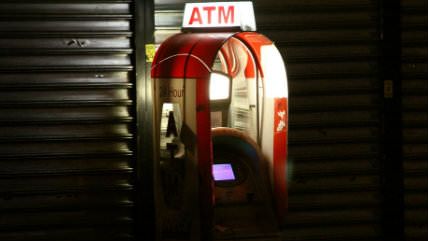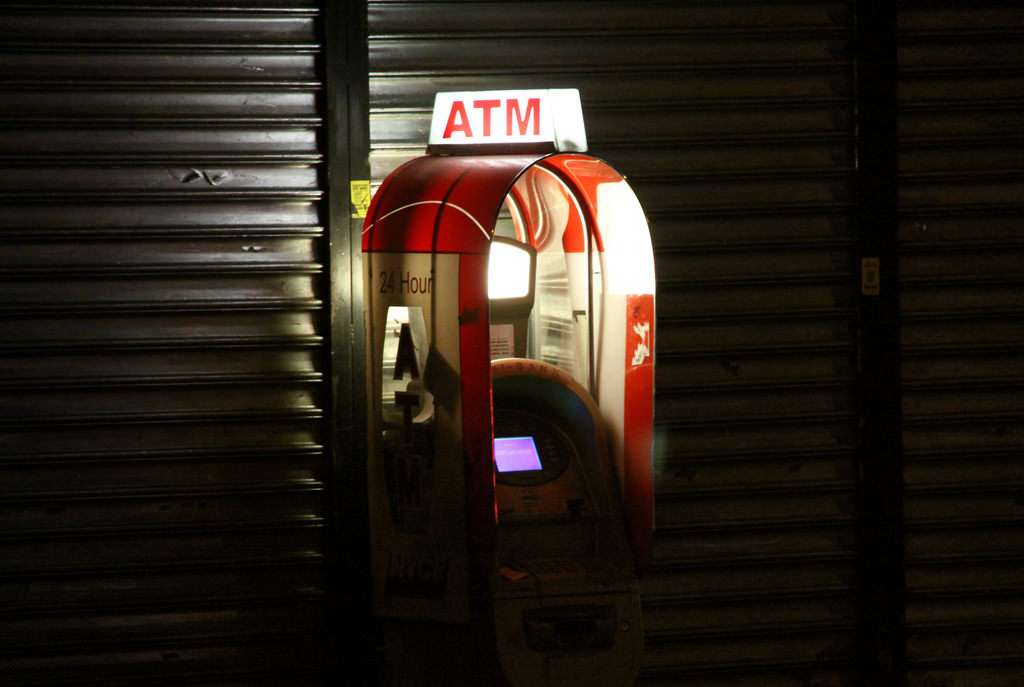How a Business Owner Becomes Criminally Liable for How Customers Spend ATM Withdrawals
When is an ATM an "interstate commerce facility"? When the FBI needs to make federal prostitution charges stick.


Until 2010, Oregon entrepreneur Lawrence George Owen, 73, owned one restaurant, eight strip clubs, and two adult-video stores in the Portland area. At these businesses, Owen installed ATM machines in case customers needed to take out cash. With that cash, customers could do an assortment of things—tip dancers, buy food and drinks, leave the establishment and go grocery shopping. And sometimes, customers used the cash to privately pay some strippers for sex.
Now Owen faces federal charges for "conspiring to use interstate commerce" in promotion of prostitution.
The charges are the results of a nine year joint-effort by Portland's vice squad and the FBI. Between 2006 and 2009, undercover Portland police officers arranged for 18 acts of prostitution with dancers at three of the clubs. After that federal agents took over, searching Owen's businesses and the homes of his alleged co-conspirators and seizing $843,000 in cash.
Owen, it should be noted, was living in Mexico most of this time. He is currently on a U.S. Marshall's hold in a Portland jail, after being detained by federal agents in late February.
You might be wondering how Owen faces federal charges if all of the alleged prostitution-promoting took place in Portland. Promoting prostitution is only a federal crime under certain circumstances, such as when the perpetrator transports or coerces an individual across state lines for prostitution purposes. Using mail, telephone calls, or other "facilities of interstate commerce" in service of prostitution will also do the trick. But the FBI has no evidence that Owen enticed or transported strip-club employees from outside Oregon, nor that he used mail or telephone calls to help facilitate their prostitution efforts.
When the FBI wants to make a case against someone, however, they'll find a way. In this case, the FBI decided that ATM machines count as "facilities of interstate commerce."
The affidavit for Owen's arrest states that customers "routinely withdrew cash from the ATMs in operation at the businesses"—cash which involved the interstate electronic transfer of funds—and used this cash to pay for prostitution. "This means the ATMs were interstate facilities that were used to promote and facilitate prostitution," it concludes.
This isn't the first case where federal prosecutors have considered ATMs interstate-commerce facilities in order to bring charges. Still, "courts have difficulty resolving what it means to use a facility in interstate commerce,'" notes Jason Weathers in a 2002 Western New England Law Review paper. "The increasingly complex and expansive nature of communications technology magnifies the problems associated with interpreting the reach of federal jurisdiction where· such jurisdiction is founded on the use of interstate commerce facilities."
There are quite a few disturbing things about the Owen case, including the fact that federal and local law enforcement spent years (and who knows how much money) investigating and prosecuting consensual sex between adults. But that's (sadly) pretty standard. What's especially worrying is the idea that merely providing a means for people to withdraw money makes business owners liable for what they spend that money on, and that using money withdrawn from an ATM in the commission of a crime could automatically elevate it from a city or state matter to a federal offense.


Show Comments (79)